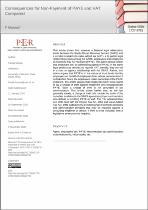Consequences for non-payment of PAYE and VAT compared
Abstract
This article shows that, whereas a bilateral legal relationship exists between the South African Revenue Service (SARS) and a vendor in relation to value-added tax (VAT), a tri-partite legal relationship exists among the SARS, employees and employers in relation to Pay As You Earn (PAYE). This article shows further that employers are, as withholding agents of PAYE, in the same legal position as vendors as regards VAT, namely, they are not in a trust or agency relationship with the SARS. Rather, this article argues that PAYE is in the nature of trust funds held by employers on behalf of employees from whose remuneration it is deducted. Since the employees retain ownership of the PAYE deducted, this article argues that employees have locus standi to lay a charge of theft against employers who misappropriate PAYE. Such a charge of theft is not grounded in tax administration. This article shows further that, as the law presently stands, a charge of theft falls outside the ambit of the remedies available to the SARS against employers and vendors who default in remitting PAYE or VAT. The Tax Administration Act, 2011 read with the Income Tax Act, 1962 and Value-Added Tax Act, 1991 codified only a limited range of criminal sanctions and administrative penalties that may be imposed against a defaulting employer or vendor. If theft is to be included, then a legislative amendment is required.

